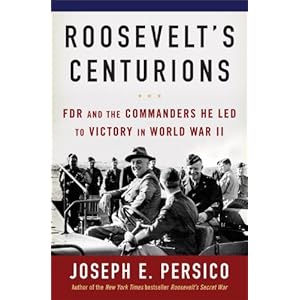No More Victory Days?
 May 8 marks the sixty-seventh anniversary of VE Day, marking victory over Nazi Germany in World War II. On that day Americans poured into the streets, horns blared, factory whistles shrieked, and churches filled. President Harry S. Truman proclaimed over the radio, “The flags of freedom fly over all Europe.”
May 8 marks the sixty-seventh anniversary of VE Day, marking victory over Nazi Germany in World War II. On that day Americans poured into the streets, horns blared, factory whistles shrieked, and churches filled. President Harry S. Truman proclaimed over the radio, “The flags of freedom fly over all Europe.”
Since that day, we have known plenty of wars, but no VK Day, VN Day, VI Day, or VA Day marking conflicts in Korea, Vietnam, Iraq and Afghanistan.
Why? What changed?
For one thing, people grow war-weary. U.S participation in World War II lasted three years and eight months. By contrast, the Iraq War lasted eight years and nine months. Afghanistan has gone on for ten years and seven months and still counting.
Further, the scale of warfare has changed. VE Day ended a conflict fought between massive, uniformed armies, with enemies easily identified and battles clearly demarked: Anzio, Normandy, the Bulge. Since then, we have fought diffuse wars against foes who strike and melt into the local population and landscape, with lines so porous and ill-defined as to present wars without fronts. And they end, or drag on, in ambiguous victory, stalemate, or even defeat. Their battles are remembered by those who fought and bled in them -- Heartbreak Ridge in Korea, Hamburger Hill and Hue in Vietnam, Fallujah in Iraq, Kandahar and Kunduz in Afghanistan -- but recalled by few others.
Further, World War II became personal to almost every American family. With 16 million servicemen in uniform and deaths exceeding 400,000, virtually everyone was touched one way or another. In 1945, one American in every eight was in uniform, 12 percent of the population. Today that number is one in 207, less than one half of one percent of the population. Veterans of Iraq and Afghanistan are deservedly heaped with praise, but the majority of Americans would be unable to name a single man or woman fighting in those wars.
World War II permeated popular culture, too. Most people could sing or at least hum the songs the war inspired: “I’ll Walk Alone,” “Saturday Night is the Loneliest Night of the Week,” “Don’t Sit Under the Apple Tree,” and for both sides, “Lili Marlene.” “Puff the Magic Dragon,” from the Vietnam era, hardly stirs emotions, though the title did spawn a nickname for the AC-47 gunship. It is also hard to imagine grunts in rice paddies chorusing, “The Ballad of the Green Berets.” Bob Dylan’s haunting “Blowin’ in the Wind” evokes the madness of war, not a celebration of victory.
Most movies produced during World War II were naked propaganda, often corny: The Story of GI Joe, Back to Bataan, Pride of the Marines. But even the classics, Casablanca and Mrs. Miniver, stirred patriotic sentiments. Movies of recent conflicts have a bitter edge. They may be artistically admirable, but they divide rather than unite. Vietnam movies have been gritty, ruthless explorations of horror fought in a moral quagmire. The Deer Hunter, Apocalypse Now, and Full Metal Jacket would scarcely spur enlistments or chest thumping.
The Cold War did mark an epic triumph for the West. But the rivalry had dragged on for forty years and the end seemed to unravel rather than mark a date to remember. We observed no VSU Day, victory over the Soviet Union.
We celebrated VE Day, and soon after VJ Day, victory over Japan, because there was something monumental to celebrate. Germany’s vaunted Wehrmacht, judged by some historians as the greatest fighting machine of the twentieth century, lay trampled in the dust and the murderous regime it served surrendered unconditionally. Japan, perpetrator of Pearl Harbor, was crushed just as ignominiously. That is how we want wars to end, with the champ holding his fist high over his head and his opponent laying prostrate at his feet. The turbulent and fragmented post-colonial world seems to have rendered such victories obsolete.
The only way that the unity and shared sacrifice the country experienced in World War II could be replicated would be to undergo again a conflagration on that scale. And the price for that conflict is beyond imagining -- fifty million lives lost worldwide.
